How do group leaders recruit postdocs?
To inform a new workshop on applying to postdoc positions, we launched a survey in March 2020 on how group leaders recruit postdocs. This was to complement our previous larger international survey on what to include in your CV.
Below you can read the results from the 35 responses we received in March-April 2020. Further survey responses from academic group leaders who hire postdocs are welcome!
1. Group leaders are looking for motivated, independent postdocs with relevant technical skills.
A wide range of qualities were provided, with motivation, independence and relevant technical skills most commonly mentioned. Fit to the team was also often an important criterion.

2. Most group leaders prefer to recruit candidates directly, rather than advertising positions
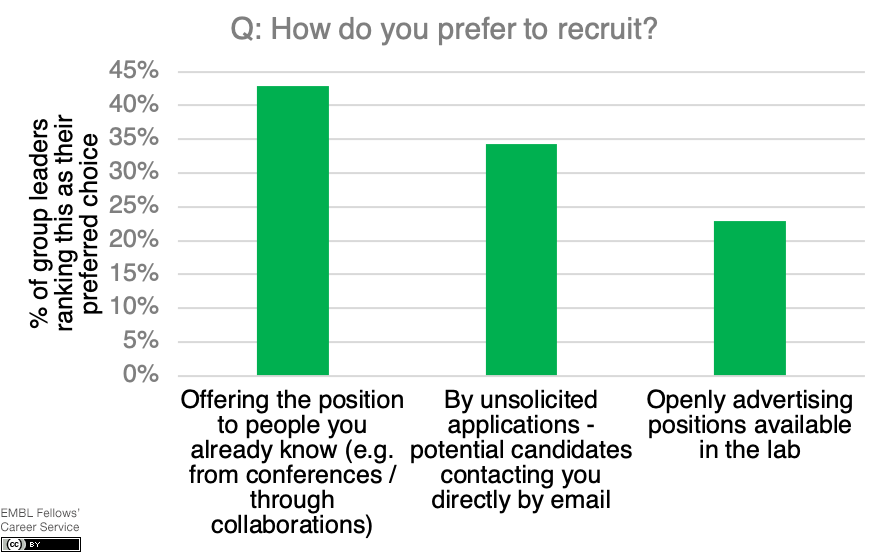
If given the choice, many group leaders (45%) prefer to offer positions to people they already know (from conferences, collaborations etc). A high number (34%) also prefer recruiting via unsolicited applications i.e. selecting postdocs based on speculative applications sent by people who would like to join their lab. Only 24% prefer to openly advertise positions.
3. The number of applications received varies by lab
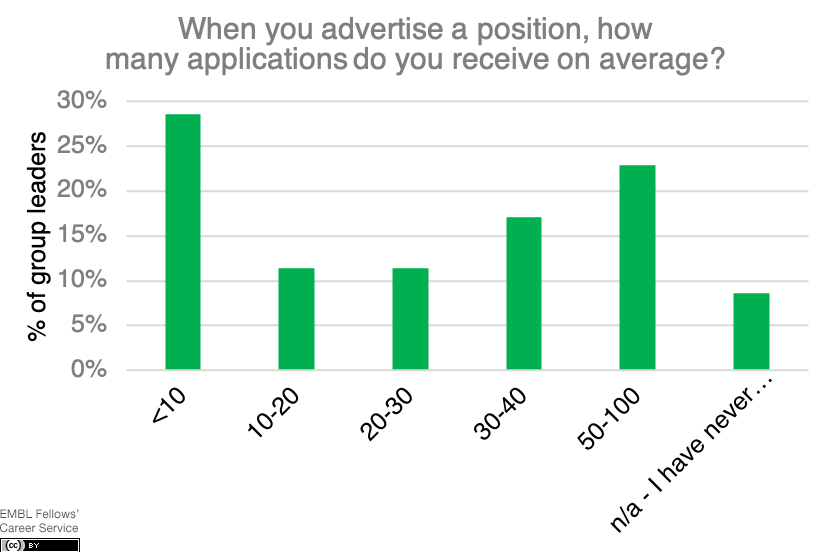
When they do advertise a vacancy, some labs receive less than 10 applications per position whilst others receive more than 50.
4. Most group leaders spend time reading applications in detail
The majority of group leaders spend at least half a day when reviewing applications to advertised positions, with some (mostly those receiving many applications) spending an entire day on this.
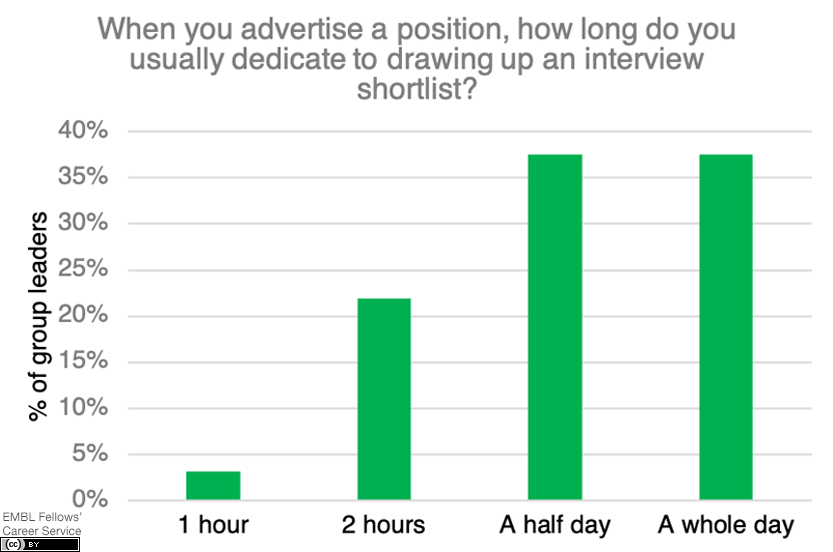
5. The cover letter is often the most important aspect of the application
When asked to rate the importance of different aspects of the application, most group leaders rated the cover letter as the first thing they check, or an extremely important aspect. Publications and technical skills were also seen as very important by most group leaders; outreach, mentoring, teaching and conferences were generally found to be less important.
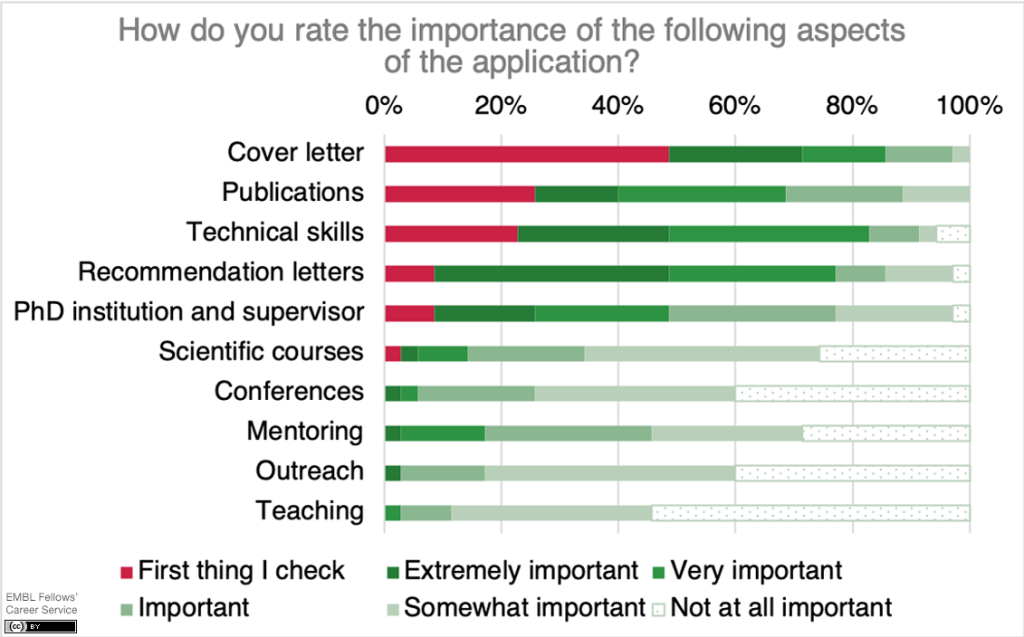
6. A first-author publication is a prerequisite for some – but not all – group leaders
There was a more or less 50:50 split in responses to the question “For you to select someone to interview, is it a prerequisite that the candidate has a first-author publication?”.
Comments to this point included:
- If not, there should be [a] statement in the ref letter of the PI why not, and why the applicant is still ‘talented for science’
- No, but I expect that they will get a first author paper from their PhD work.
- It depends. Usually yes, but in some cases, I have waived that requirement, eg they are from a country that does very short PhDs.
- Of course, it helps if the candidates have good first author publications, but it’s not required.
- A submitted manuscript is required, if the published paper is not out yet.
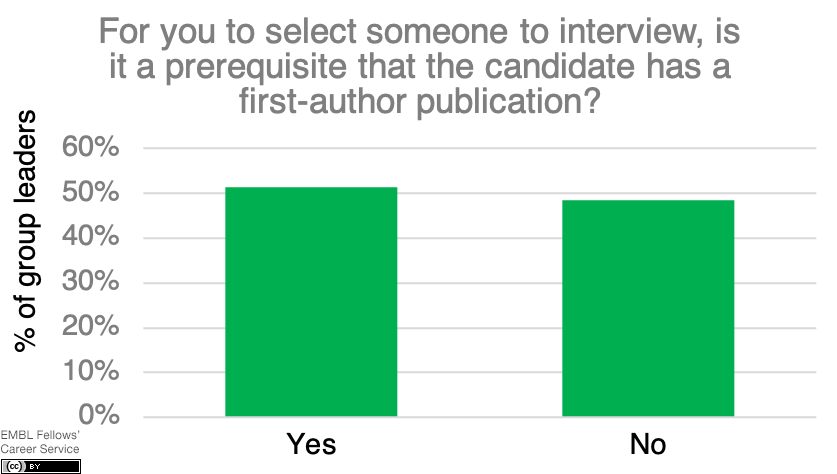
7. Postdoc applicants can include publications in preparation in their CV – but only if the manuscript drafts actually exist. These should have their own section, and not be listed with already published papers.
Many group leaders highlighted that if a manuscript is in preparation, being able to read this can help them assess the candidate. Several group leaders highlighted that preprints now offer a good way to make manuscripts available earlier.
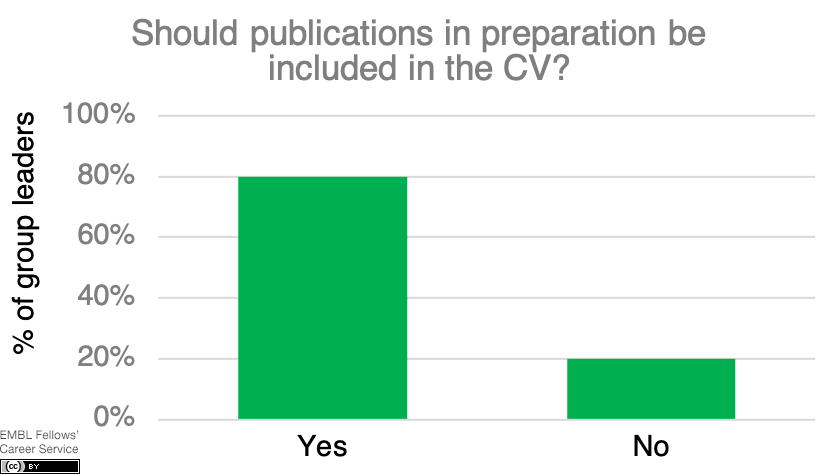
8. A letter of recommendation from the PhD supervisor is often required
However, depending on the exact circumstances, many group leaders would still consider an applicant who cannot provide this. For example if:
- if the reason is explained
- another reference comments on the situation from a neutral standpoint,
- there is a strong recommendation from someone else well-placed to judge the candidate’s character and aptitude for research (for those more advanced in their career, this may include the current postdoc advisor).
If your PhD advisor is not able / willing to provide a positive reference, it may be advisable to mention this in the cover letter – and, if applicable, note that you have also asked the other people providing references to comment on their view of the situation.
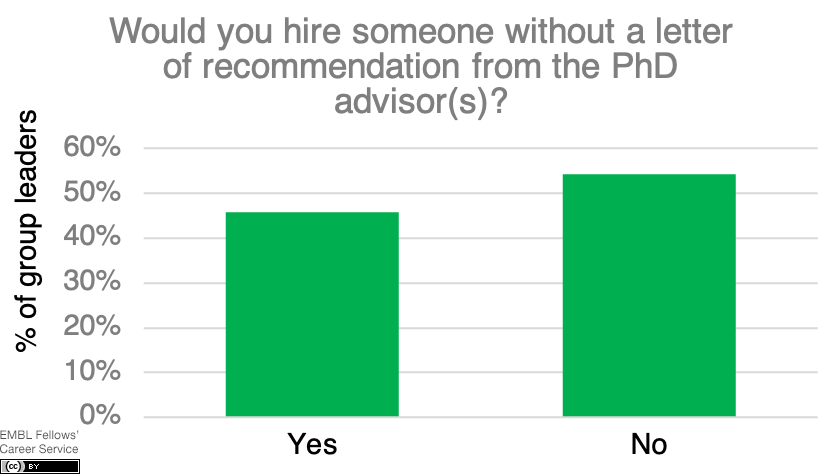
9. When is the best time for potential postdocs to send unsolicited applications
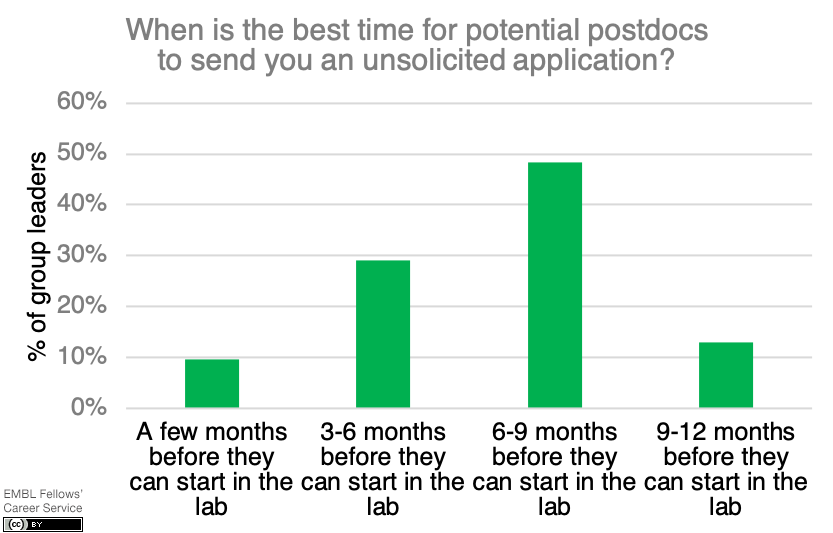
6-9 months before the candidate can join the lab was the most popular timeframe, with one group leader noting that “6 month[s is] ok, 9-12 gives better chance to plan finances” and another noting that “depending on funding situation; but for example applying together for a grant takes a while, so the earlier, the better”. For other group leaders, shorter timescales were also okay.

This work is licensed under a Creative Commons Attribution 4.0 International License.
